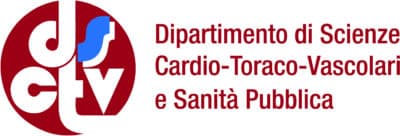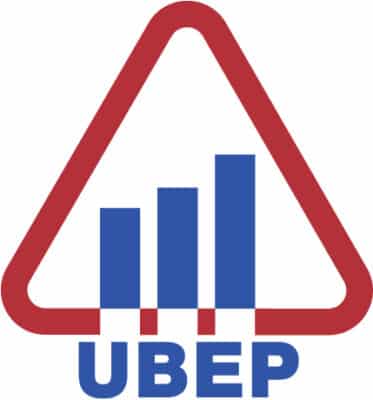

The Master in Pharmacoepidemiology and Evaluation of Integrated Care trains professionals with multidisciplinary skills.
Purpose of this course is providing the elements to plan and implement pharmacoepidemiology and integrated care evaluation studies, using real world data, obtained by integrating administrative and healthcare flows and medical registries, and to interpret the relevant scientific literature in a critical way.
It is a Level-2 annual, inter-university Master, provided in online and on-demand mode, and promoted by the Biostatic, Epidemiology and Public Health Unit of the Cardio-ThoraVascular and Public Healthcare Studies Department of the University of Padua, and by the Healthcare Research & Pharmacoepidemiology Centre, in partnership with 12 Universities, and with the additional participation of professors from 9 Institutions and Regions.
The Master in Pharmacoepidemiology and Evaluation of Integrated Care is divided into two training areas, provided online and on-demand through the Moodle multimedia platform.
The first part provides basic knowledge on epidemiology, biostatistics and research planning, and covers the main healthcare information systems, and data integration and management methods. Then, it describes the main planning projects and statistical techniques commonly employed in pharmacoepidemiology. The last part delves on the main methodological principles required to evaluate integrated care, and provides the fundamentals on healthcare regulatory aspects.
The Master in Pharmacoepidemiology and Evaluation of Integrated Care provides technical and scientific training to professionals with multidisciplinary skill, working in the healthcare sector, to help them plan and conduct observational epidemiology studies within the pharmacoepidemiology and integrated care evaluation field.
Career opportunities include pharmaceutical companies, national healthcare service institutions and universities.
Module 1: Biostatistics and epidemiology – Prof. Ileana Baldi – University of Padua
This module provides an overview of research in pharmacoepidemiology and integrated care assessment, focusing on the importance of good study design and the use of quantitative methods. Students will acquire skills in epidemiology, biostatistics, research design and quantitative methodologies, which are essential for excelling in pharmacoepidemiology. Various epidemiological study designs (cross-sectional, cohort, case-control, etc.) and statistical analysis methods will be explored, with a focus on practical application using software. The module also includes a critical evaluation of results, considering errors, bias and confounding.
Module 2: Health information sources and flows – Dr Salvatore Scondotto – Sicily Region
The module explores the use of individual health data collection systems to support public health decisions, analysing information sources such as hospital discharge records, mortality registers and pharmaceutical databases. Record linkage techniques and the use of validated algorithms to track care pathways between hospitals and the community will be explored in depth, with a particular focus on the management of chronic patients. The analytical methodologies necessary to ensure data quality and the sustainability of the healthcare system will also be examined.
Module 3: Advanced Pharmacology I – Prof. Giovanni Corrao – University of Milan-Bicocca
This module will provide the methodological tools for the design, conduct, analysis and interpretation of pharmacoepidemiological studies. Topics such as an introduction to pharmacoepidemiology, the measures used, the main study designs and statistical analysis methods will be covered. In addition, sources of bias in studies and methods for controlling them will be discussed. At the end of the module, students will have acquired the skills to understand and participate in the design of pharmacoepidemiological studies.
Module 4: Advanced Pharmacology II – Prof. Francesco Barone Adesi – Marche Polytechnic University
This module is a natural continuation of the basic module, exploring the application of the methods introduced in advanced contexts of pharmacoepidemiology. Specific areas will be explored, such as comparative effectiveness research, drug utilisation research, the evaluation of biological drugs and vaccines, paediatric pharmacoepidemiology, pharmacoeconomics and pharmacogenetics. In addition, advanced statistical methods will be introduced, including multilevel analysis, meta-analysis, multistate models, and signal detection methods, which are useful in pharmacoepidemiology.
Module 5: Methods for evaluating integrated care – Prof. Flavia Carle – Marche Polytechnic University
This module explores the methodological principles necessary for evaluating integrated care, considered a valuable tool for addressing the challenges of the healthcare system, such as ageing and the increase in chronic diseases. Topics such as the characteristics of integrated care systems, the principles of healthcare evaluation, and methods for analysing effectiveness and cost-effectiveness will be covered. In addition, the module includes the acquisition of scientific evidence from the literature and the analysis of examples of active evaluation systems.
Module 6: Regulatory aspects and policy – Dr Nello Martini – ARC
This module will explore the new organisational models needed in the National Health System (SSN), focusing on the adoption of Diagnostic-Therapeutic-Care Pathways to ensure sustainability and high quality of care. Key legislative measures such as Ministerial Decree 70/2015, the LEA guarantee system and the National Chronic Disease Plan will be analysed. The module will explore the use of Real-World Evidence (RWE) in regulatory decisions and will assess the burden of disease, integrated care costs and differences between regional governance tools. The aim is to provide the tools to understand and apply regulatory changes in the SSN.
Director: Cristina Canova, University of Padua
Co-Director: Matteo Franchi, University of Milan-Bicocca
12 participating Universities: University of INSUBRIA, MILAN-BICOCCA, PADUA, PALERMO, PAVIA, WESTERN PIEDMONT, SASSARI, TURIN, TRIESTE, UDINE, VERONA, Polytechnic University of the MARCHE Region.
9 participating Institutions and Regions: Istituto Superiore di Sanità, Azienda Ospedaliera Udine, Azienda Provinciale Sanitaria di Trento, Emilia-Romagna, Lombardia, Marche, Sardegna, Sicilia, Veneto.
The general ranking of merit will be published on the Italian page of this Master according to the timing provided in the Call.
Information
FAQ
Attendance at the master’s programme is compulsory. In order to obtain the qualification and the certificate of attendance for the master’s programme, students must attend 70% of the online lessons.
1. Exemption for students with disabilities
There is no enrolment fee for candidates with a certified disability and an invalidity rating of between 66% and 100%, or for those in possession of a certificate pursuant to Law No. 104. These students will only be required to pay the pre-enrolment fee, insurance and stamp duty.
2. PA110 cum laude discount
Public administration employees who enrol in the Master’s programme are entitled to a discount of €330 on the second instalment of the enrolment fee.
Enrolment for University staff.
University staff are eligible for enrolment as supernumeraries to enable continuous and permanent professional development. The enrolment fee for University technical and administrative staff is 20% of the standard fee. If staff members meet the course admission requirements, once they have completed the course they will be awarded the relevant Diploma or Certificate. If they do not meet the admission requirements, they may be admitted as auditors and receive a certificate of attendance.
3. Enrolment fee for auditors
The enrolment fee for auditors is 50% of the course enrolment fee. At the end of the course, auditors who have met the minimum attendance requirement may be issued with a certificate of attendance by the course director.
The Master is online, and may be followed also by students working full-time jobs, since it will be provided on demand on UniPD Moodle multimedia platform.
It features on-demand lessons, as it was designed for students and professionals who wish to conciliate other activities and professions with the need to qualify or specialize themselves further.
The course covers many interrelated topics, divided into six modules, with periodical homework to test the competences acquired. Homework is also provided on-demand. Interaction between students and professors will be frequent, and facilitated through Moodle Forum.
The second part of the course will include a project work (approximately around June-August) during which students will draft a protocol, a study plan, and real data analysis concerning the concepts acquired through the Master, with the option of including cases promoted by students, in agreement with the tutor. The project work will also be presented online, on the Zoom platform.
The final evaluation will refer to both the homework completed during the year and to the project work.
The Master’s programme does not include an internship or work placement, as at the end of the course there is a Project Work assignment on a topic covered during the Master’s programme. The assignment will be discussed online in front of an examination board.
Admission to the Master’s programme is based solely on academic qualifications. The procedures are described in the Master’s programme application form, which can be found on the University of Padua website.

